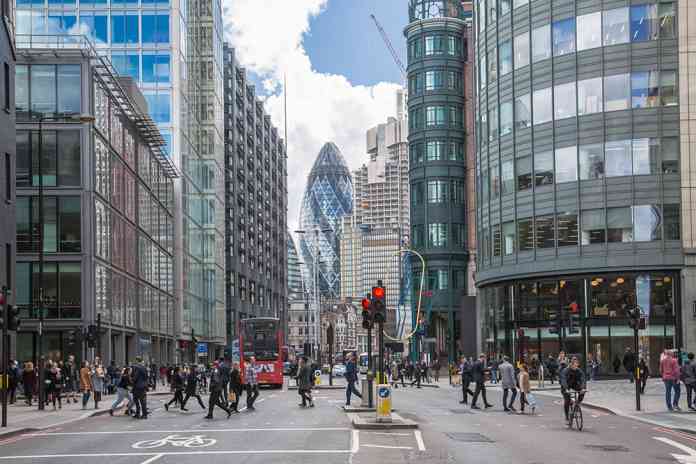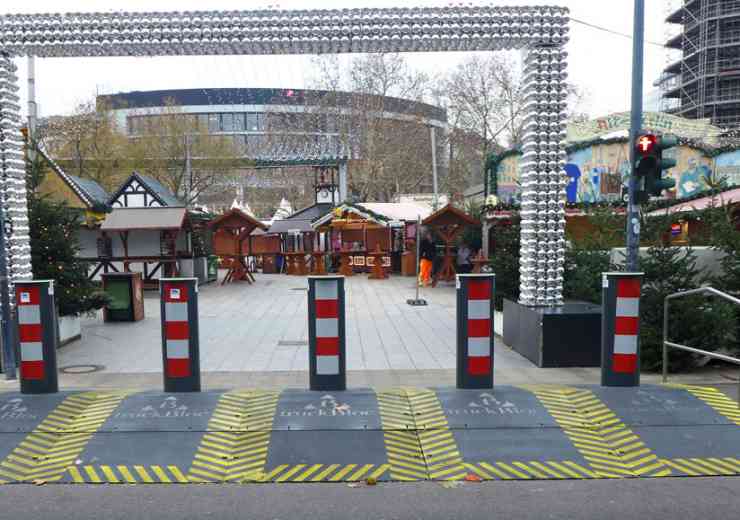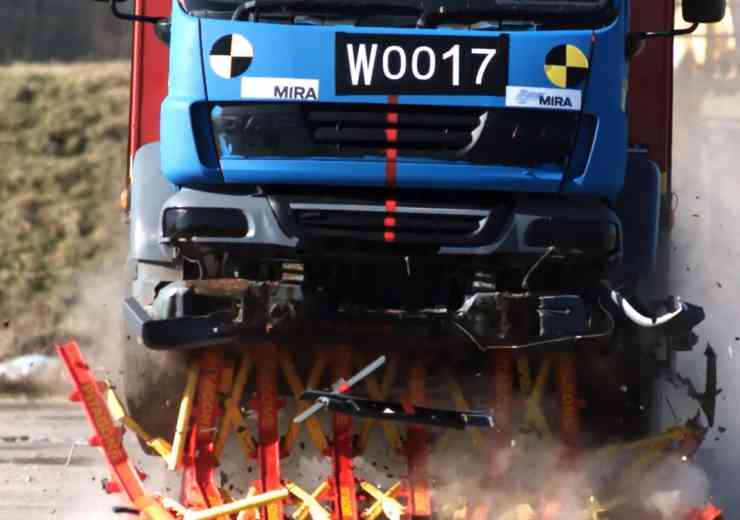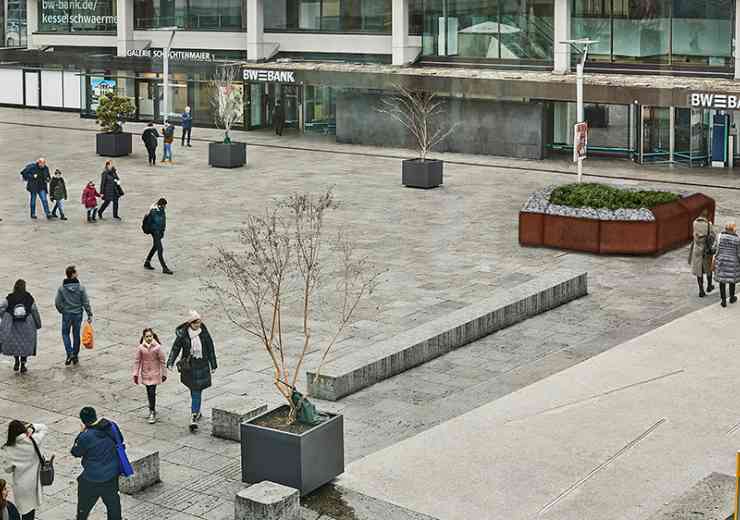
“Do what’s right to protect fellow human beings,” warn HVM experts
Event organisers have a Corporate Social Responsibility to take immediate action to protect members of the public, leading hostile vehicle mitigation (HVM) experts have warned While the Martyn’s Law legislation may not be in force for months, organisers are being strongly advised to review their HVM measures immediately and make the necessary improvements right away, instead of waiting for the law to change. “The legislation may not be introduced for some time yet, but that doesn’t mean event organisers should wait until then before making vital improvements to their event security practices,” said Niall Griffin, of Hardstaff Barriers, one of the UK’s leading suppliers of HVM solutions. “It’s about doing what’s right to protect fellow human beings, rather than waiting until the last possible moment before making improvements, because the law tells you to,” continued Mr Griffin. His warnings are echoed in the company’s White Paper - ‘Time to Act Now: Hostile Vehicle Mitigation and the Responsibilities Facing Event Organisers’ - published earlier this year. The guidance document encourages event organisers to “do the right thing” and consider their corporate social responsibility, as well as their ethical and moral duty above all else, rather than wait for the impending legislation to come into force. Hardstaff Barriers, part of Hill and Smith Infrastructure, is responsible for delivering the Government’s National Barrier Asset (NBA) framework and employs leading experts in the field. Mr Griffin, a former police officer, is one of less than 300 Chartered Security Professionals on the Register in the UK, making him one of the most knowledgeable and qualified specialists working in the hostile vehicle mitigation industry. He added: “Anyone who attends an event – from a small gathering to a sports game attended by thousands of spectators – has the right to be safe and protected. Nothing can be more important than this. “Organisers have a duty to ensure, so far as reasonably practicable, the health, safety and welfare of all attendees and those working within their event environment. “This includes the grey area immediately outside the venue where people are often held for search and screening or ticket checks. The reality is they would not be in that area if they were not attending the event.” The need for Martyn’s Law There is currently no legislative requirement for organisations or venues to consider E or employ security measures at the vast majority of public places. Martyn’s Law is new legislation announced by the Prime Minister in December 2022. The new law will improve the safety of venues and publicly accessible spaces and will see people better protected against terrorist attacks. Previously known as Protect Duty, it was established in honour of Martyn Hett, one of the 22 victims tragically killed in a terrorist attack at the Manchester Arena in May 2017. More than 800 other people received physical or psychological injuries in the explosion, which occurred after an Ariana Grande concert. Protect Duty proposes five key requirements: 1. A requirement that spaces and places to which the public have access engage with freely available counterterrorism advice and training. 2. A requirement for those places to conduct vulnerability assessments of their operating places and spaces. 3. A requirement for those places to have a mitigation plan for the risks created by the vulnerabilities. 4. A requirement for those places to have a counter-terrorism plan. 5. A requirement for local authorities to plan for the threat of terrorism. Mr Griffin added: “What is clear is that we do not need to wait for Martyn’s Law to become law before acting. We already have legislation and guidance, which should be sufficient for event organisers to act now to ensure the safety of those working or attending their event in any publicly accessible space.” A publicly accessible location is defined as ‘any place to which the public or any section of the public has access, on payment or otherwise, as of right or by virtue of express or implied permission.’ “It won’t happen to me” Most organisations embrace Corporate Social Responsibility and recognise that there must be accountability when things go wrong as a direct result of their action, or inaction. But research by psychologists over the years has shown that humans generally possess an ‘optimistic bias.’ It is commonly defined as the mistaken belief that one’s chances of experiencing a negative event are lower than that of others. More often than not, people believe ‘it won’t happen to me.’ Nobody directly involved in a terrorist or accidental incident ever expected it to happen. But clearly, these incidents do happen and they have to affect somebody. Leading by example In recent years, the All England Lawn Tennis Club has made a number of proactive steps to increase protection for fans visiting the Wimbledon Championships. HVM barriers are now routinely installed outside the venue as part of “enhanced measures” to provide “visible physical security” at the event. Tournament organisers say there has been a “proportional uplift” in measures introduced in past years. Many of these measures go over and above the legal requirements and have been implemented because it was the right thing to do. The importance of seeking expert advice When selecting an HVM solution, it is essential to seek the expert advice of an industry specialist. This expert can advise on the most appropriate HVM solution, based on the specific needs of the event and the likely risks. Many different HVM systems are available, including portable, lightweight and movable barriers - often used at open air events to limit the potential of hostile or errant vehicles interacting with pedestrians or event attendees. Others are heavy surface-mounted vehicle gates, pedestrian portals or access points - often used where protection from vehicles is required and where legitimate access for delivery or emergency response is still required. Linear HVM barriers are often utilised to prevent the vehicle pedestrian interaction, where queues form adjacent to live traffic flow, for instance. Invest in training It is vital to ensure that every team member responsible for managing the event and the public in attendance, should be properly trained to handle situations if they do go wrong. These individuals have a huge responsibility in the event of an incident. It is only fair to them, and to the people they have a duty to support in the event of an incident, that they are properly equipped to respond. Become an HVM Champion “Nothing can be more important than keeping people safe, so be proactive, proud and become a champion for event security,” added Mr Griffin. “Taking these proactive steps well before the introduction of Martyn’s Law will not only put public safety at the top of your priority list, but it will also tell the world how seriously you take this vital issue. “What could be a better boost for your event’s reputation, than publicly demonstrating your commitment to keeping people safe?” There is a range of information available in the public domain to support event organisers, wherever they are on their event security journey.

















